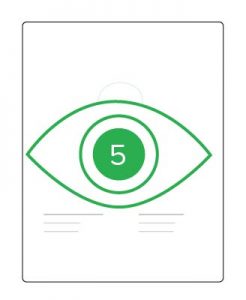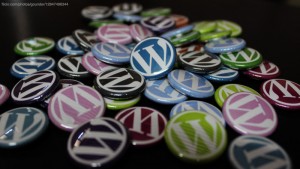Columnist Jordan Kasteler discusses the value of visuals in marketing and why the images generated by your customers are your most powerful marketing tools.
 It’s a fact. Your marketing department is not as good at selling as the amateurs outside the business are: your customers.
It’s a fact. Your marketing department is not as good at selling as the amateurs outside the business are: your customers.
There’s proof.
When your customers come across customer-generated content during their web journey, the average order value increases by 10 percent, according to BI Intelligence. Brands see a 78-percent lift in conversion rates when customers interact with user-generated content, and a 75-percent increase in revenue per visitor.
This is because consumers have learned not to trust the perfect, fake images brands use in their marketing initiatives. Instead, they increasingly trust reviews and images uploaded by their peers — which is why many brands’ product description pages are starting to use images generated from their customers.

For instance, in the image above, consumers get to see how this watch looks on real people. Not only that, it tells people that a) others are buying this product, b) people are happy with their purchase, and c) the product is real and looks like the one in the photos.
Power of images
Images attract attention. Content that contains a relevant image gets a whopping 94 percent more views, according to the Content Marketing Institute. And articles that contain an image every 75 words or so stand double the chance of being shared on social media.
On the other end of the spectrum, 54 percent of consumers abandon online purchases because of unhelpful images about the product.
Images are powerful, and providing visual content online will be a top priority in the years to come.
E-commerce on social media
Facebook users are uploading 350 million photos every day.
E-commerce is starting to recognize the value of that statistic to generate more sales. Your customers are your best sales reps, not your business — because your customers trust their peers more than they will trust a brand.
When you leverage your fans’ social activity, you’re likely to find a boost in conversions.
The success of customer-generated content on social media is based on social proof; human beings are psychologically predisposed to learn from others so that we avoid making potentially harmful choices. Social proof works best when consumers are experiencing high levels of uncertainty — e.g., when they are just about to make an online buy.
Intelligent software will provide the actionable insight with your analytics data. That’s how brands have seen an increase of 25 percent in conversions when they use customer-generated photos instead of professional images for product descriptions.
One example of a company that uses user-generated content is Chubbies, an e-commerce store on Shopify. Chubbies emphasizes in this recent case study that their marketing focuses on building trust. They say, “Rather than pictures of the founders in skimpy shorts or professional models with rock star-like features, Chubbies wants real men to show off their retro shorts known for their forgiving elastic waist bands.”
Chubbies’ Facebook page — with its impressive 1.47 million likes — consists of mostly customer-generated content, which Chubbies even uses on its product description pages to increase conversions:

Retailers on Instagram
Instagram’s engagement and growth have surpassed those of all social media networks, and research shows that out of all the social media sites, it brings the most engaged traffic.

Even though Instagram is growing rapidly, and brands are utilizing it for its image-power, for business and customer-generated content, there are a few challenges:
- There is no way for retailers to include a path to purchase if a consumer is interested in a product they upload on their Instagram page.
- Businesses and customers alike often upload images featuring products they’re using, but within a day or so, no one sees those photos again.
- Instagram does not provide a solution for businesses to get permission to use customer images in other marketing activities.
These are the problems addressed Yotpo’s visual commerce tool, which helps businesses looking to leverage their fans’ social media activity. It allows you to collect the best customer-generated content from Instagram, but it also helps businesses with rights management, photo discovery, shoppable feeds and moderation.

With this tool, customers can buy the products in images that are posted to Instagram. Some cases have seen up to a 180-percent increase in conversions, according to Yotpo. It allows customers to discover products and go straight to the product page to complete the transaction.
And then use the images you source in all your other marketing content — on blog sites, on social media sites, landing pages, you name it.
Conclusion
Images generated by your customers are a powerful marketing tool, because online, with a lack of face-to-face interaction, it’s about building trust.
Online marketing is evolving into visual marketing, which is why Instagram for business and retailers is exploding.
As mentioned above, when brands use customer-generated photos instead of professional product description images, they can expect about a 25-percent increase in conversions.
Because Instagram is shown to bring the most engaged traffic, it may be time to introduce your Instagram page to visual marketing.
Some opinions expressed in this article may be those of a guest author and not necessarily Marketing Land. Staff authors are listed here.
Marketing Land – Internet Marketing News, Strategies & Tips
(85)
Report Post








